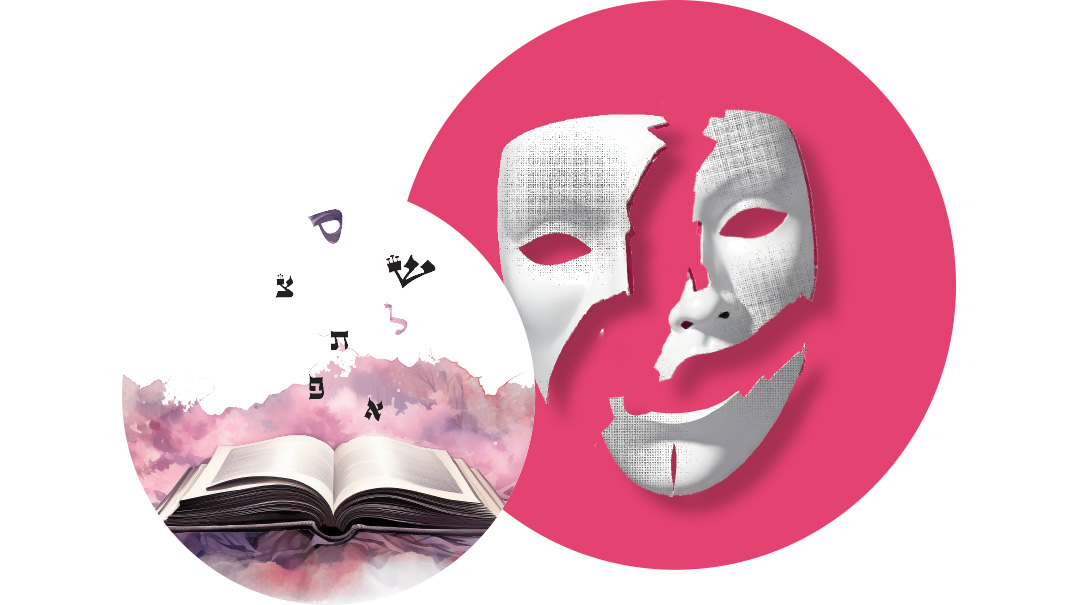Family First Inbox: Issue 776

"No one person in any institution should be in a position with no oversight — every school should have a system of checks and balances in place"

We’re Not Alone [Musings / Issue 775]
Dear Esther,
I read your article “Making Tehillim Mine” and felt myself tearing up.
I, too, can read. I actually taught various subjects from seforim inside with very little issue because I prepared the pesukim and mefarshim well. But I, too, struggle with fluency. When it comes to saying Tehillim it’s a nightmare. I recall the days in school when we would be asked to read Tehillim pasuk by pasuk, finishing a perek or two, going around the class. I am not shy. I am not quiet. I don’t think there was anyone whom you had to strain to hear more than me.
I joke that I know the first 30 perakim really well, because I always start with the aim to finish and stop around there. I also know the last bunch, both because of davening and also because many Shabbosim I would be inspired to do the “yom.”
But from 30 to 120... all bets are off. To borrow from Dr. Seuss, I will not take them on a chat, I will not take them on a card, I will not take them in a group, I will not take them on my own, I will not take them on a plane, I will not take them on a train... you get the idea!
Oh, and during many a Rosh Hashanah or during any inspired moment, I’ve tried to finish all of Tehillim, or start to finish, but it just feels like I’m hopeless at it.
I considered not signing my name to this letter. It’s embarrassing to admit this all publicly. But then I thought about the gift you gave me and others like me by signing your name to your piece. It was liberating to know that we are not alone and that we can keep at it. It may also be a way for reading experts to learn that one of the barriers to fluency practice is not willpower — it’s exhaustion.
Sarah Rivkah Kohn
Founder & Director, Links & Shlomie’s Club
wereinittogether.org
Look Challenge in the Face [Windows / Issue 775]
The article “Making Tehillim Mine” was honest, clear, and inspirational. Esther Kurtz shared a part of her life — her difficulty with Hebrew kriah — that I suspect felt very familiar to many. What I found so incredible, in addition to the vulnerability expressed in the article, was how Ms. Kurtz utilized her struggle and dove head first into something that she could have easily avoided for the rest of her life, and succeeded in completing the entire sefer Tehillim.
We all have challenges we may wish to ignore, especially if they do not seem to affect others.
What would happen if we were to look those challenges in the face and work through them? They would no longer be hidden away, they would instead act as a catalyst for growth, thus strengthening ourselves and passing on those attributes to our children and others in our lives.
My sincere thank you, Ms. Kurtz, for your openness and inspiration.
Robyn Grossblatt
Let’s Scale the Mountain [Inbox / Issue 774]
I didn’t mean to cry. Certainly not on Shabbos. But the tears kept coming, and it stung. I read “Mountains around Jerusalem,” about the newlywed who had a hard time living in Israel, and was so pained.
We are not talking about Mount Everest. We are part of the incredible story of Mount Sinai. We don’t decide if we are going to scale a mountain. We just do it!
It is hard enough to accept the fact that the vast majority of frum Jews don’t make aliyah. Why did this story have to end the way it did?
Couldn’t the “posek” advise the young couple to stay as tourists in a rental apartment for another year without any pressure to purchase a property?
Once the couple leaves Eretz Yisrael, it will indeed feel like Mount Everest to get back to Israel. And this couple had money from close family to make their transition much easier. What sort of message will this piece send to other shanah rishonah couples who don’t have a grandfather footing the bill to purchase an apartment?
I keep thinking to myself, what is the toeles of this article? It seems to me the author has a very good grasp of what life is like here for those who choose to live their shanah rishonah in Yerushalayim. Why did she have to show so much negativity?
Is it hard not to be surrounded by close family and have to miss out on numerous smachot? Absolutely. Does it take time to adjust from seminary student to permanent resident? Absolutely. Is it worth the price we pay by living in Eretz HaKodesh?
Absolutely.
My wish is that every Jew gets to “Camp 4” and sees the tremendous beauty in all that Hashem has blessed us with.
B’vrachah,
Lisa Silverberg
Let’s Read with Balance [Inbox / Issue 774]
Dear Rivka Chaya Berman,
As an American who made aliyah (real aliyah! We are citizens!) a bit over a year ago, I too braced myself to roll my eyes at the “Mountains around Jerusalem” story and its whipped cream cheese. But although I would personally never move back to America for reasons like Mimi’s, the author takes great pains to show that Mimi has a number of reasons for moving, including family simchahs and increasing sadness despite doing “all the right things,” like exercising and going out with friends. And the couple even asks a sh’eilah! Boiling two-thirds of the story down to cream cheese isn’t fair to the author.
As to the part of your letter that equates the story to BDS propaganda, I am scratching my head. Nowhere in the story did Mimi express reservations about Palestinian rights or some such — simply being “too in-towny to live anywhere but there” (at worst) has absolutely no relationship to anything like that. As for “which side are you on,” that is exactly the logical fallacy that BLM supporters use — BLM is against racism, so if you are against BLM, clearly you are pro racism.
There are enough choices that Jews make that are so beyond the pale that it is dangerous even to publish stories sympathetic to them. Let’s not make “not making aliyah” be one of those choices.
Sincerely,
Michal Schapira, Har Nof
It’s Time for Change [Words Unspoken / Issue 773]
I clearly recall the moment my 11th-grade daughter came over to me in tears crying about her chances of going to seminary. Her older sister, just a year older, had seamlessly applied, interviewed, and been accepted to the seminary of her choice. She was eagerly awaiting this exciting next stage in life. My younger daughter cried bitter tears, knowing that she didn’t have much chance for this unique opportunity.
Why, you might ask? Both of my daughters are baruch Hashem solid Bais Yaakov girls whose middos and innate desire to grow inspire me and are a credit to their fabulous high school mechanchos. The only difference between them was that my older daughter is a straight-A student while my younger daughter, despite tremendous toil and effort, is not. This is no reflection of laziness or apathy; it is a reflection of a challenge given to her by HaKadosh Baruch Hu Himself, called dyslexia.
I remember the pit in my stomach while I tried to comfort her. I knew her odds were truly miniscule. My daughter was a solid girl with high aspirations. She wanted to go to a mainstream seminary, but knew that due to her learning disability, she wouldn’t stand a chance. I spontaneously suggested, “Write a letter. Write a letter expressing your pain and frustration, and maybe with Hashem’s help you will help spark a change. Your letter can represent the voice of all quality ‘non-academic’ students.”
And so she did. She locked herself in a room and wrote the beautiful Words Unspoken that by now has been read by thousands. It is my fervent hope that instead of pointing fingers and defending positions, now that this challenge has been brought out into the public eye, we can implement real change.
I humbly ask high school principals and seminary administrators to unify in forming a vaad that will work together to ensure that no high-caliber student is left behind due to a learning disability, to ensure that these girls are not callously rejected and left behind with emotional scars that may last a lifetime.
I ask that seminaries receive up-to-date training on learning disabilities. They should know that individuals with learning disabilities are just as intelligent and motivated as others; they simply can’t spit back information and test in the classic way. With simple modifications, they too can participate and learn on a high level just like their more “academic” classmates.
I ask that there be rabbinic involvement: that our devoted rabbanim give their brachos and stamp of approval to seminaries that take in a set number of high-caliber “non-academic” girls who are yearning to learn and grow in Eretz Yisrael just like their peers.
Am I being naive and too idealistic? Only time will tell. But just as I told my daughter “write a letter and maybe you will spark a change for the better,” so too I am penning these words beseeching all those who have the power to implement change to do so now, while this topic is on our minds. Let’s not bemoan the system yet again and then simply move on. I implore those in positions of leadership to make a change that will help bnos Yisrael around the globe.
Mother of a “Straight-A Bas Yisrael”
The Goal of Seminary [Words Unspoken / Issue 773]
Dear Principal,
I think the real question that should be addressed is why girls are going to seminary. Is it to train to be the next generation of teachers, as you wrote? These is definitely a handful of girls for whom that is the case, and for whom the rigorous text-learning and mefarshim curriculum is appropriate. And I agree with you about the other girls who think seminary is for seeing Eretz Yisrael, friendship, trips, and some hashkafah — let them go for the six-week experience.
But what about the rest of the girls? The girls who are truly looking for the bridge between high school and adulthood, who are looking for that life-changing year in Eretz Yisrael that takes the lessons learned from her parents’ house and high school, mixes that in with an intense year of growth in Torah in the holiest of places, and uses that to mold her into a woman who is ready to hold the torch of fire to lead the next generation of Klal Yisrael? Oh, yeah, but school wasn’t the easiest for her. What about that girl?
“A tzaddik falls seven times and he will rise” is a pasuk that tends to describe the large group of girls I am asking about. Speaking for myself two years post seminary, my grit and fortitude played an enormous role as a student. I view personal growth as walking up a down escalator; if you’re not constantly taking steps up, you’re descending pretty quickly.
Despite the major obstacles I faced in school, it didn’t stop me from trying my absolute hardest most days. The key that helped me get through school was the knowledge that after 120, Hashem wouldn’t care about the grades I got; He would only care about the effort I put in. As someone who is strong in her Yiddishkeit, sharp in conceptualizing hashkafos within the Torah, but isn’t necessarily so academic, I looked for a seminary that fit those needs. Fortunately for me, I did find that perfect blend — Ateres Bnos Yerushalayim. Unfortunately for so many girls, there just are not so many out there.
The problem with the seminary system is that the more Bais Yaakov a seminary is, the more academic and textually based the curriculum is too. It’s a package deal, which is really a shame. Why not have more options with multiple tracked curriculums, with that balance of textual and hashkafah based classes? This seems to stem from a very narrow vision. Don’t compromise on the intense schedule, don’t bend on rules and expectations, just accommodate the girls who yearn to get closer to their Creator, but simply can’t memorize 15 Rambans.
It is ironic that seminaries, whose primary goal is to develop Bnos Yisrael into the wives and mothers of the next generation, look for the smartest and most academically accomplished girl. At the end of the day, with the exception of that next generation of teachers, the textual skills won’t help with the piles of laundry, will not clean the kitchen, won’t make Yom Tov for a crowd, and certainly can’t navigate through the practical guidance needed to be a good wife. Those qualities are what matter and should be what mothers of boys are looking for in shidduchim. When your husband comes home from yeshivah or the office, and he asks, “Hi, honey, what’s for dinner?” I don’t think the notebooks of divrei Torah from seminary are what will be the most nourishing to him. Just a hunch.
Rachel Feldman
Victory Mindset [A Better You / Issue 775]
I loved what Shira Savit wrote a couple weeks ago about having a victory mindset. I have tried applying it to my life in all areas, and it’s really been helpful to focus on that voice more often. We as women focus so much on what is not working. That mind shift really did a lot for me, and I want to say thank you.
R.G.
If You See Something, Say Something [Dream On]
I’m sure I’m not the only reader who finds that Gila Arnold’s seminary serial is keeping me on the edge of my seat. Ever since Tammy Hurwitz failed to handle Shani’s eating disorder properly, I’ve found Gila’s very realistic portrayal of upsetting situations almost too much to bear. (Only almost — I do keep reading!)
I’ve worked in the sem world for years, and one fact has been bothering me from the beginning about Gila’s story.
It appears mistakes being made are due to Tammy’s youth and inexperience. But that is often not the case. An institution can have a very experienced staff member overstepping bounds with students and making poor judgment calls. The very nature of that staff member’s seniority and authority in the school renders her above censure. There’s not always a “Mrs. Edelman” to guide that individual or call her out on inappropriate behavior.
I find it ironic that in the same issue that the fictional Tammy Hurwitz was told that she has a boundary problem, the main mag had a feature about protecting our children.
Most schools are very careful with who they hire, and most staff are caring, intelligent, and appropriate, but on the rare occasions that a staff member is making these mistakes, she often is not stopped because anyone who notices feels they are not in a position to speak out against the staff member. As in Tammy’s case, malicious intent is not necessary to cause harm. Many people, including those with experience, occasionally assume they are equipped to handle a situation that is beyond their skill set.
No one person in any institution should be in a position with no oversight — every school should have a system of checks and balances in place.
I cannot stress enough the mantra of “See something, say something”— and then to keep being persistent until someone is listening. Experience is not a guarantee of propriety.
Name Withheld
We deeply regret the publication in last week’s edition of an ad containing damaging messages regarding women and weight loss. For the past year and a half, our editors and writers have promoted the ideals of intuitive eating and health at any size in a variety of formats. This ad does not reflect our belief and values. We’ll be reviewing our advertising protocols to avoid such situations in the future.
(Originally featured in Family First, Issue 776)
Oops! We could not locate your form.







